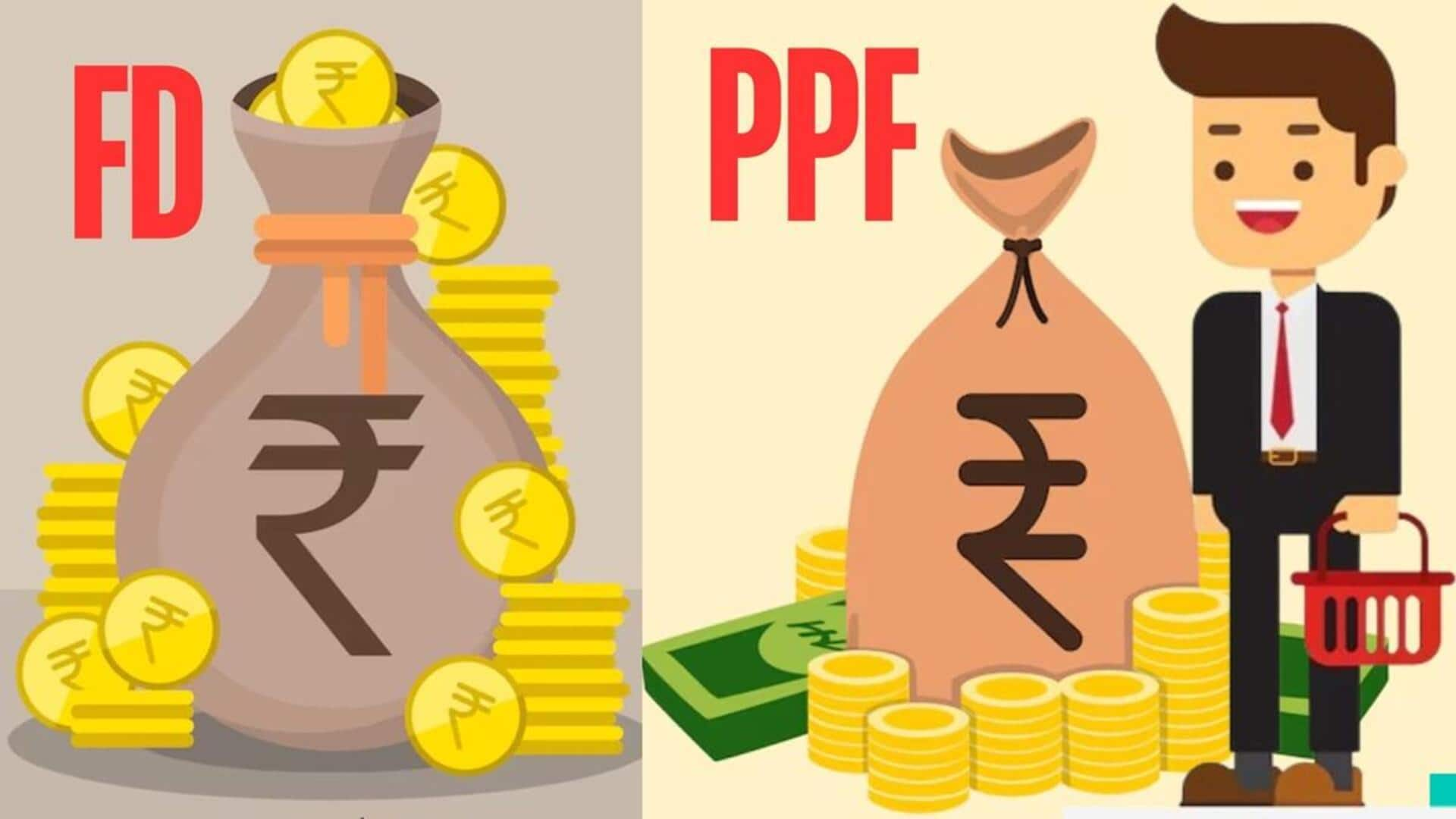
PPF or FD: What's the right investment option for you?
What's the story
Public Provident Fund (PPF) and Fixed Deposits (FDs) are two popular investment options in India. While both promise safety and decent returns, they differ in terms of liquidity, return rates, and investment duration. Knowing these differences can help you make informed financial decisions based on your goals. Here's a look at the pros and cons of PPF and FDs to help you choose the right investment for your needs.
#1
Understanding PPF: A long-term investment
PPF is a government-backed, long-term investment scheme with a minimum tenure of 15 years. It offers attractive interest rates, which are revised quarterly by the government. The funds deposited in PPF are locked until maturity, except under certain conditions. This makes it a great option for those looking to save for long-term goals like retirement or children's education.
#2
Fixed deposits: Short to medium-term option
Unlike PPF, fixed deposits offer flexibility in terms of tenure, ranging from seven days to 10 years or more, depending on the bank's policies. FDs usually offer higher interest rates than savings accounts but lower than PPF in the long run. They are ideal for people looking for short to medium-term investments with assured returns.
#3
Liquidity considerations: Accessing funds early
One of the biggest drawbacks of PPF is its low liquidity, as funds are locked until maturity, except under specific circumstances such as loans against PPF accounts or partial withdrawals after the sixth year. On the other hand, FDs allow premature withdrawal, albeit at a penalty or reduced interest rate. This makes FDs more attractive for those who may need access to their funds before maturity.
#4
Tax implications: Understanding benefits
PPF contributions qualify for tax deductions under Section 80C of the Income Tax Act, up to ₹1.5 lakh per financial year. The interest earned on PPF accounts is also tax-free. However, FDs do not offer similar tax benefits, as interest earned on them is taxable according to the individual's tax slab rate. This makes PPF a better option for tax-saving investments.